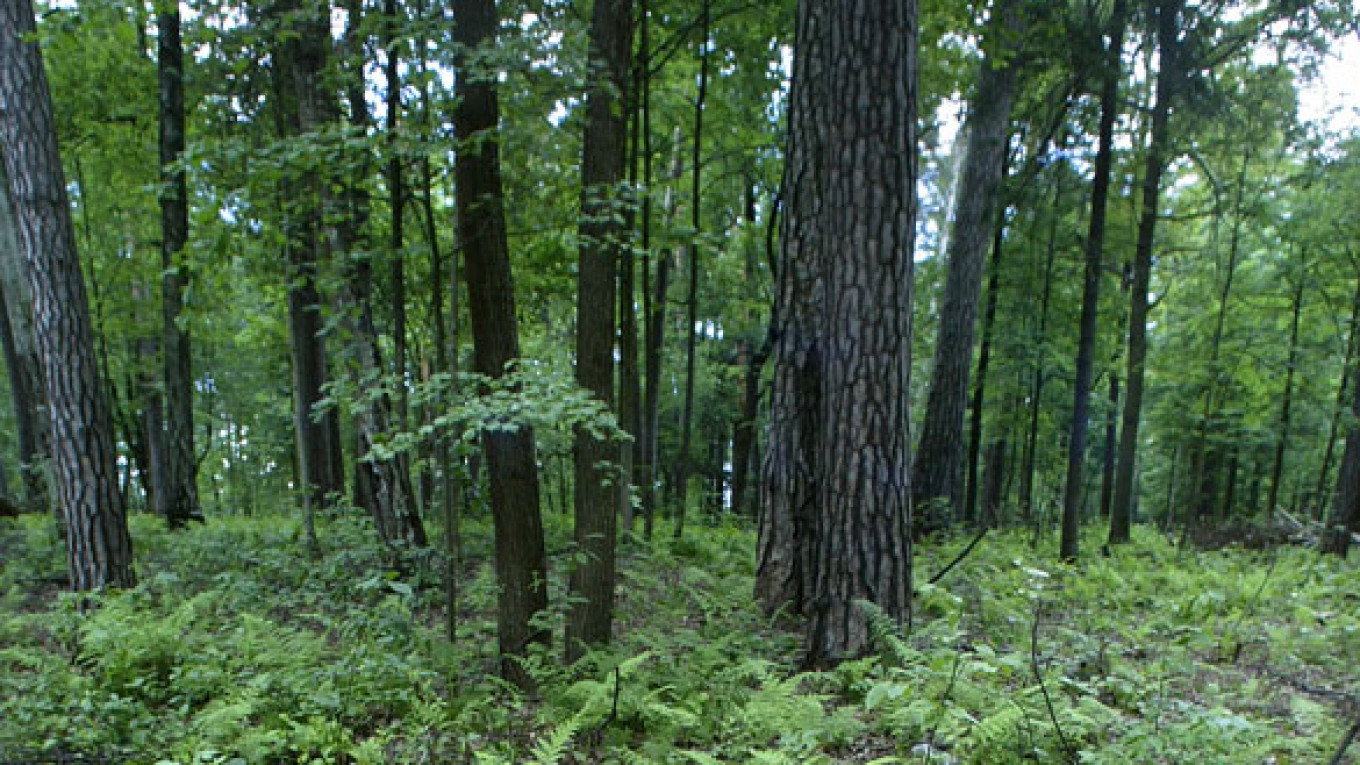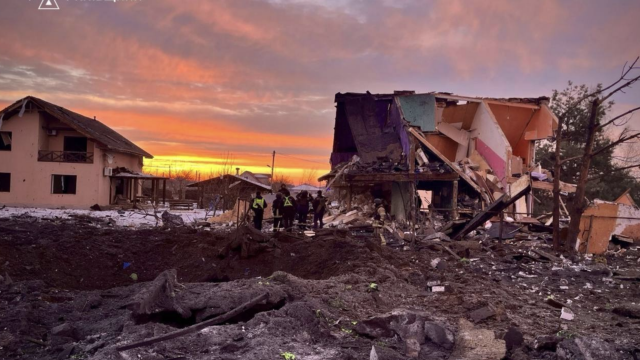A French company started clearing a Khimki forest for an $8 billion highway connecting Moscow and St. Petersburg, but its work was halted Thursday by environmentalists.
France's Vinci Concessions cut down trees in an area equal to two football fields near the Novotel Sheremetyevo Moscow hotel on Wednesday before the environmentalists showed up Thursday morning and demanded to see deforestation permits, which the workers were unable to provide, the public group In Defense of the Khimki Forest said.
The activists put up tents near the deforestation site in Khimki, a town on Moscow's northern outskirts, for 10 people to monitor the area around the clock to make sure work did not resume without the permits.
The workers promised to show the permits Monday, said Yevgenia Chirikova, head of In Defense of the Khimki Forest. "They promised to provide everything, but on Monday at 2 p.m.," she said, Interfax reported.
Greenpeace Russia asked the Prosecutor General's Office to check "without delay" whether the workers had permits for the deforestation, the environmental watchdog said in a statement.
Officials with Vinci Concessions, which leads the North-West Concession Company, a consortium building the road, could not immediately be reached for comment.
Ecodefense, an environmental group, linked a four-day traffic jam on Leningradskoye Shosse in late June and early July to the deforestation in Khimki, saying it was "engineered deliberately to get a green light for the construction" of the Khimki road.
In Defense of the Khimki Forest together with the Federation of Car Owners of Russia appealed to the Prosecutor General's Office this week to investigate the reasons for the snarled traffic, which city authorities have blamed on construction work on a small bridge in Khimki.
In late April, the Supreme Court brushed aside environmental concerns over the deforestation of the old oak forest, allowing work on the highway to proceed.
The forest has become a symbol of grassroots activism in Russia over the past two years. In November 2008, Mikhail Beketov, one of the forest’s staunchest defenders and the editor of the local newspaper Khimkinskaya Pravda, was badly beaten after he criticized the Khimki administration for supporting the deforestation. The attack, which remains unsolved, left Beketov brain damaged, and one of his legs had to be amputated.
A Message from The Moscow Times:
Dear readers,
We are facing unprecedented challenges. Russia's Prosecutor General's Office has designated The Moscow Times as an "undesirable" organization, criminalizing our work and putting our staff at risk of prosecution. This follows our earlier unjust labeling as a "foreign agent."
These actions are direct attempts to silence independent journalism in Russia. The authorities claim our work "discredits the decisions of the Russian leadership." We see things differently: we strive to provide accurate, unbiased reporting on Russia.
We, the journalists of The Moscow Times, refuse to be silenced. But to continue our work, we need your help.
Your support, no matter how small, makes a world of difference. If you can, please support us monthly starting from just $2. It's quick to set up, and every contribution makes a significant impact.
By supporting The Moscow Times, you're defending open, independent journalism in the face of repression. Thank you for standing with us.
Remind me later.






